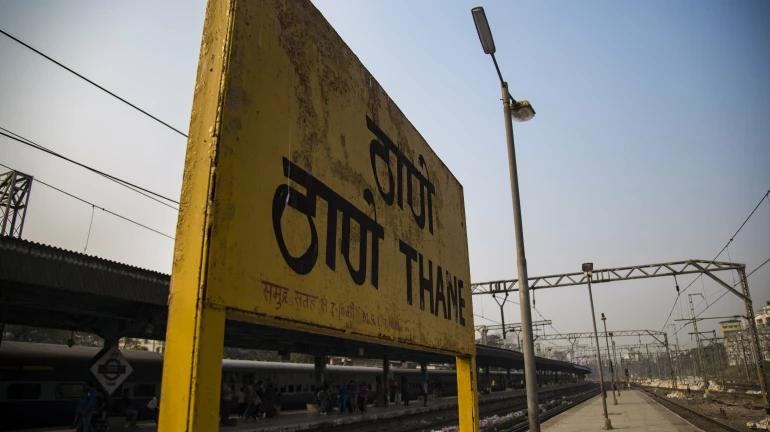
Thane has been looking at a mix of climate issues and increasing greenhouse emissions, thanks to its established status as an IT hub. However, a new report has identified how the city can reduce its annual emissions by 22% within 2025-26, through effective action points that can be implemented at a city and state level.
It is pertinent to note that this city in Maharashtra is a key pillar in the state’s developmental masterplan.
The report, ‘State of Cities: Towards Low Carbon and Resilient Pathways’, has been published by the National Institute of Urban Affairs (NIUA) under the Ministry of Housing & Urban Affairs, in partnership with International Council for Local Environmental Initiatives (ICLEI) South Asia, gives an insight into 15 of India’s smart cities, and their future challenges and pathways in terms of climate resilience, which includes mitigation of greenhouse gases (GHG). GHG in the Earth's atmosphere traps heat and contributes to the greenhouse effect, leading to global warming.
“This report is a first of its kind, which not only underscores the urgent need for resilient climate action but also highlights the crucial role they play in attracting investments for low carbon transitions. It serves as a guidebook for Indian cities, enabling them to navigate the complexities of sustainable urban development and make informed decisions that will shape a greener, more resilient future. By harnessing the potential of the report, we aim to create a harmonious balance between economic progress, environmental stewardship, and social inclusivity, ultimately shaping a sustainable and prosperous future for all," said Hitesh Vaidya, Director, NIUA, adding that NIUA’s role as the U20 secretariat is to help cities understand their commitments and develop sustainable solutions to achieve inclusive prosperity.
As per the report, Thane has GHG emissions of 2.29 million tCO2e (metric tons of carbon dioxide equivalent), uses 13.06 million GigaJoule (GJ) energy and consumes 1,677 million kWh electricity annually. When it comes to consumption in Thane city, residential buildings consume the highest energy (47%), and are also the highest GHG contributors (43%). In terms of the amount of energy consumed by the local Government, its GHG emissions profile puts transport as the highest energy guzzler (36.9%), but the highest emissions contributor (47.8%) is public sector buildings. The report’s projections for Thane till 2025-26 are increased average minimum temperature, and average rainfall for the district.
The report has listed action points to ensure that the city, Mumbai Metropolitan Region’s commercial hub with its economy mainly based on consumer related services including hospitality and IT industry, reduces its emissions by 22% within 2025-26. To get there, all buildings (residential, commercial, industrial) must use rooftop solar and solar water heaters, evaluate integration of District Cooling Systems and conduct energy audits for retrofits. There must be green building designs for high-rises, and deployment of solar PV and solar water heating systems at hotels and hospitals.
The transport sector could look at developing an Electric Mobility framework, introduce electric buses with solar PV charging facilities at depots, and replace the existing diesel bus fleet with CNG buses. There must also be a speedy application of EV for intermediate public transport (IPT) modes of transport. In the area of waste management, the administration can look at 600 tonnes per day (TPD) waste to energy and 2 TPD plastic waste to fuel plants, scientific closure of landfills and development of a solar farm, and decentralised bio methanation and composting plants for organic waste processing. There should also be a city-wide scale-up of energy efficient street-lighting.
Municipal Buildings can reduce heat ingress through urban cooling measures and implement Solar PV systems to meet energy demand. Water and wastewater departments can adopt renewable energy systems at water supply and sewage treatment facilities
The report also demarcated wastewater treatment, stormwater management, and solid waste management to be at high risk in its assessment. “While the assessment talks about risks, there are ways to mitigate them, thanks to technological interventions in the palm of our hands. Thane can look at an integrated urban water management and catchment management plan. Additionally, there can be integrated groundwater management through increased recharge efficiency. For wastewater treatment, we need to look at a faecal sludge management policy with reuse methods, and dual plumbing. In regards to StormWater Management, the administration can install an IoT-based stormwater grid, harvest rainwater with regular monitoring and incentives, and look at an early warning system and flood lines for hazard alerts,” said Emani Kumar, Executive Director, ICLEI South Asia.
Kumar further added, “Thane also needs a holistic waste management plan, and it must scale up GIS-enabled Smart Waste Management Services for bins and vehicles. It can enable a sustainable transport system by making pedestrian friendly walkways to promote NMT. To manage biodiversity, disaster management, pollution control and health, they must increase carbon sequestration potential of urban forests, prepare a heat action plan and generate urban heat island maps to effectively implement the Clean Air Action Plan.”
The report arrives at a crucial juncture as cities bear the brunt of climate risks, with nearly 68% of the global population expected to reside in urban areas by 2050. Rising temperatures, droughts, wildfires, and rising sea levels threaten city infrastructure, livelihoods, and economies. Fossil fuel dependency worsens greenhouse gas emissions, exacerbating the climate crisis. Challenges like urban heat islands, water scarcity, food insecurity, air pollution, and health concerns further burden city dwellers. To tackle these issues, empowering cities with policies, funds, and inclusive governance is essential. Cities must take center stage, driving climate resilience and action.





